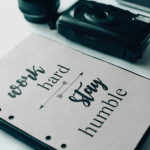It is only during our early lives that we are routinely amazed at the world before our eyes. In infancy we are at exactly the right age to be bewildered as we gaze at the blur of shape and color before our eyes, as we peer with curiosity at what DH Lawrence calls the buzzing, blooming confusion of life.
Before too long we will be reaching out to grasp at the shiny objects dangling before us. In a few more years, when we add words to our toolkit, we will barrage our parents with questions born of our insatiable curiosity – a curiosity that, like the sun, illuminates our world.
But as we age, the world no longer shines in our eyes like a bright new thing; instead it fades, and becomes our familiar home, full of useful objects that no longer excite wonder. Familiarity may not breed contempt, but it certainly breeds indifference.
The fires of first curiosity have gone out.
For many though, these fires are rekindled, drawing us to examine the deeper realities of the physical world, to explore the mysteries of our inner selves, to turn to the past and untangle its long story. Wherever we venture, we are abuzz with questions. The answers we have found have given us our modern lives, our longer lifespan and our material comforts.
But today it is our troubled dealings with one another that stand most in need of curiosity and the questions it inspires. Not our relationships with friend and family, neighbor and colleague, but instead with those who live at a greater distance, with the strangers who occupy the many groups into which we sort our fellow beings.
When one of these groups becomes the object of our hatred, then its members are no longer merely strangers. Instead, they have become enemies. The bright light cast by curiosity has gone out, our questioning spirit has fled, and we are plunged into darkness.
Our current political and cultural wars are often fought in this darkened world. It is here that we must ask, “Where have all the questions gone?”
Alan Jacobs, in his book How To Think, observes that identity and belief work together to clump us into our various groups. First, shared belief connects us to other like-minded people with whom we form an identity. Afterward, identity and belief work together to maintain their grip on us. Once bound to such a group, it is very hard to leave.
The result, in a world deeply divided over politics and culture, where the social norms that normally restrain us from demonizing and wishing harm toward those with whom we disagree, have all but disappeared, is the world we inhabit today, a world where hatred often knows no bounds.
Jacobs offers advice for overcoming this blind, and blinding, hatred. Seek out a representative of the hated group who can express in a sensible and clear manner the ideas that we so despise. By asking what they believe, and why, then listening to their response, we begin to overcome the isolation of one faction from another that is splitting apart our society.
And when we do hear the voice of the enemy, we must avoid the trap of assuming from the outset that the opponent must be wrong. Instead, figure out for ourself if, in fact, they are in error. We might find that, at least on some matters, our opponent may have words worth listening to.
We may even discover that the person who holds what we deem a monstrous idea, isn’t actually a monster themselves.
Jacob’s advice can be reframed as a call to reawaken our slumbering curiosity; to let our questioning spirit bring light to the world. Not with questions laced with malice, questions intended to trick and trap our adversary, but instead with questions born of a genuine desire to know and understand one more of the infinite variety of beliefs held by humans.
Of course, there is need for debate – we live in a world full of disagreement over many subjects. And in the sunlit parts of the world, where disagreement isn’t so toxic, these disputes are fine, even essential. But in the darkness which envelops so much of our culture, only the bright light of curiosity can save us.
Have things today gone so far that all we can do is lament the loss of the world we once knew? Will the sun ever shine again in a world where so many places have turned dark?
In the sixties a popular song, sung by the Fifth Dimension, asked us in its chorus to “Let the sunshine in.” Like much of the popular music of the time, another age in which society was divided, this song, titled “Aquarius”, was a call to peace.
Can we hope for a world in which curiosity is reawakened, in which we ask simple and honest questions of one another? A world where the sun shines through, to once again light up the landscape in which we live.
Suggested Reading
How To Think: A Survival Guide For a World At Odds by Alan Jacobs




